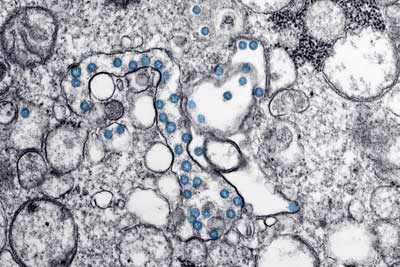CDC, Department of Health Updates COVID-19 Treatment Guidelines
- March 06, 2020
Brookings Health Updates Measures Accordingly

On Thursday the Centers for Disease Control and Prevention (CDC) and the South Dakota Department of Health (DOH) updated coronavirus disease 2019 (COVID-19) guidelines for who should seek treatment for COVID-19.
The CDC now recommends individuals who came from either a Level 3 or a Level 2 travel advisory country within the past 14 days and feel sick with fever, cough or difficulty breathing seek medical care. Current Level 3 and Level 2 travel advisory nations include China, Iran, South Korea, Italy and Japan.
In addition, the DOH recommends that individuals who were in a geographic area with community transmission within the past 14 days and feel sick with fever, cough or difficulty breathing seek medical care. According to the CDC, current states with community transmission include Washington, Oregon, California, Arizona, Wisconsin, Illinois, New York, New Hampshire, Massachusetts, Rhode Island, North Carolina, Georgia and Florida.
“Brookings Health System has updated our measures accordingly to follow both the CDC and Department of Health guidelines,” said Infection Preventionist Bunny Christie. “We remind our community, this is an evolving situation. For the latest updates, please get your information from a credible source such as the CDC or Department of Health.”
Any individual who has been in close contact with a person known to have COVID-19 within the past 14 days and feels sick with fever, cough or difficulty breathing should seek medical care. Individuals should call their health care provider’s office before seeking treatment and explain their symptoms and travel or contact history.
Per the CDC, clinicians can use their judgement to test anyone for COVID-19. The DOH strongly encourages clinicians to test for other infectious causes of respiratory illness first, such as influenza and RSV. Patients without symptoms are not eligible for testing at the South Dakota Public Health Laboratory.
According to the DOH, there are still no persons under investigation for COVID-19 in South Dakota. The DOH has not administered any tests nor have confirmed any cases of COVID-19 in South Dakota.
“The risk for COVID-19 in South Dakota is still low,” said Christie. “We all need to be good stewards and apply proven infection control strategies to keep us all healthy. Practice good hygiene and respiratory etiquette. Cough and sneeze in to your upper sleeve or a tissue and frequently wash your hands for at least 20 seconds with soap and water. Stay at home, away from others, when you are sick.”
In addition Christie says COVID-19 is easily killed by household cleaners or soap and water. People should clean and disinfect high-touch surface areas, such as counters, tabletops, doorknobs, bathroom fixtures, toilets, phones, keyboards and tablets, every day.
“The CDC does not recommend that people who are well wear a facemask to protect themselves from respiratory illnesses, including COVID-19,” says Christie. “Facemasks should be used by people who show symptoms of COVID-19 to help prevent the spread of disease to others. It is also crucial for health care workers and people who are taking care of someone in a close setting to wear an appropriate facemask.”
Facts About COVID-19
COVID-19 is a respiratory illness that can spread from person to person. It was first detected in Wuhan City, Hubei Province, China and has now been detected in almost 70 locations internationally, including the U.S.
According to the CDC, people with COVID-19 experience mild to severe respiratory illness with symptoms of fever, cough and shortness of breath. Complications may include pneumonia in both lungs. People at greatest mortality risk from COVID-19 include the elderly and those with chronic medical conditions like diabetes, COPD, underlying heart and lung diseases, or other immune compromising conditions. Children are more likely than adults to present with mild symptoms.
The best prevention is to avoid exposure to the virus.
If people seek treatment for COVID-19 at Brookings Health System’s emergency department, they should call (605) 696-9000. If they visit one of the local clinics for COVID-19 treatment, they should call their clinic’s respective phone number. To learn more about health care safety at Brookings Health System, please visit brookingshealth.org/Safety.
About Brookings Health System
Brookings Health System, located in Brookings, South Dakota, includes a 49-bed hospital, the 79-bed The Neighborhoods at Brookview nursing home, Brookhaven Estates senior living apartments, Yorkshire Eye Clinic & Optical, and medical clinics in Arlington, White and Volga, South Dakota. It is a non-profit, city-owned facility that offers the community a full range of inpatient, outpatient, emergency and extended care services. Brookings Hospital provides local access to doctors in Brookings and offers robotic da Vinci surgery and Mako robotic-arm assisted procedures, making it one of the premier rural community hospitals in South Dakota. For more information about the services offered at Brookings Health System, please call (605) 696-9000 or visit us on the Web at brookingshealth.org.

